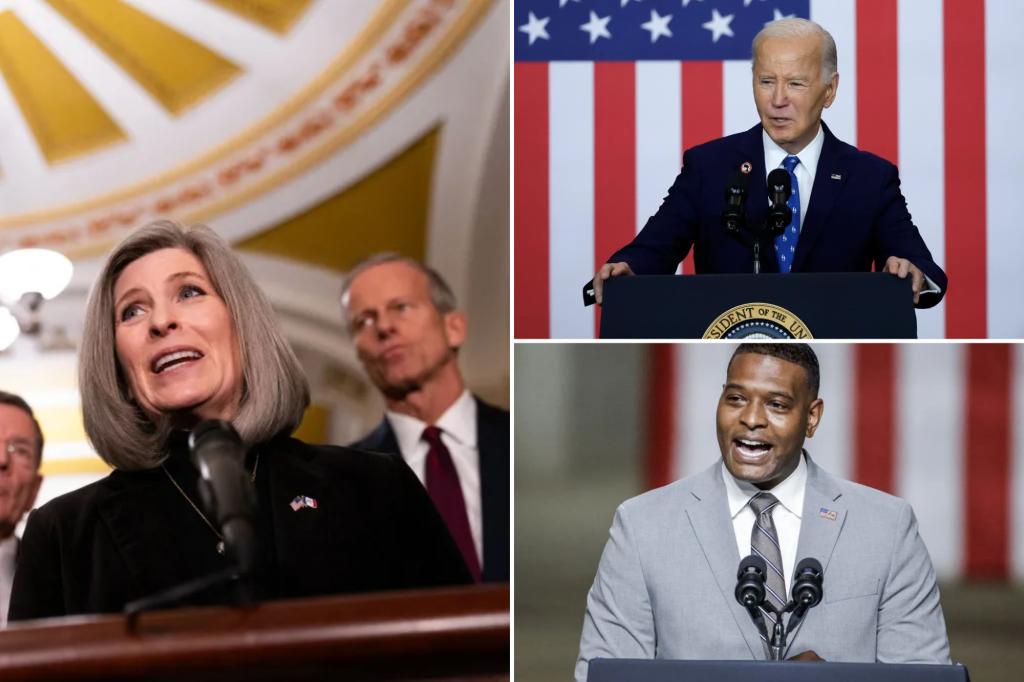Senator Joni Ernst, a Republican from Iowa and leader of the Department of Government Efficiency (DOGE) caucus, has launched a pointed critique of the Environmental Protection Agency (EPA), accusing the agency of a reckless spending spree in the waning days of the Biden administration. Ernst has called for a moratorium on new EPA grants until President-elect Donald Trump’s team assumes control, citing concerns about the rapid disbursement of taxpayer funds and the potential for waste, fraud, and abuse.
Ernst’s central argument revolves around what she perceives as a “spend now, think later” mentality within the EPA. She points to the agency’s recent allocation of $1.6 billion through its Community Change Grants program, a figure dwarfing the $325 million previously awarded since the program’s inception. This substantial increase in funding, occurring so close to the transition of power, has raised red flags for Ernst, who views it as a last-minute attempt by the outgoing administration to allocate funds without proper oversight. She draws a parallel to her earlier scrutiny of the Commerce Department, where she raised similar concerns about the rapid disbursement of funds from the CHIPS and Science Act.
Adding fuel to her concerns is the estimated $280 billion lost to fraud during the COVID-19 pandemic, a stark reminder of the risks associated with hastily distributed funds. Ernst argues that the urgency surrounding these disbursements often compromises due diligence, creating vulnerabilities that fraudsters can exploit. This experience, she contends, should serve as a cautionary tale against repeating such mistakes, particularly during a presidential transition. The senator emphasizes that taxpayer money should be allocated responsibly, with thorough vetting to ensure alignment with national interests, rather than serving the personal or political agendas of individuals within the administration.
Ernst’s criticism extends beyond the sheer volume of spending to the nature of some grant recipients. She specifically highlights a $50 million award to the Climate Justice Alliance, criticizing the organization’s refusal to condemn the Hamas attack on Israel. This example, in Ernst’s view, illustrates a misallocation of funds to groups whose values may not align with broader American interests. She demands transparency regarding the EPA’s funding decisions, particularly those made under the Inflation Reduction Act and the Infrastructure Investment and Jobs Act of 2021.
To address her concerns, Ernst has formally requested the EPA to preserve all records related to these funding decisions. She seeks detailed information on negotiations between the EPA and grant applicants, specifically focusing on any instances of expedited consideration. Furthermore, she demands clarity on the level of communication between the EPA and the incoming Trump administration regarding these grant programs. This information, she believes, is crucial for ensuring accountability and preventing potential misuse of public funds during the transition period.
Ernst’s position as head of the DOGE caucus underscores her commitment to fiscal responsibility and government efficiency. This caucus, co-headed by Elon Musk and Vivek Ramaswamy, aims to identify and eliminate wasteful government spending. Her actions against the EPA are consistent with this mission, reflecting her determination to scrutinize government expenditures and advocate for responsible allocation of taxpayer dollars. The senator’s insistence on transparency and accountability from the EPA underscores her belief that public funds should be utilized judiciously and with the utmost respect for the taxpayers who provide them. She views her role as a steward of public funds, obligated to ensure their efficient and effective use.
The EPA’s response to Ernst’s allegations remains pending, but the senator’s actions have already sparked debate about the appropriate level of government spending during a transition period. Her concerns, coupled with the historical context of pandemic-related fraud, highlight the delicate balance between expediting crucial funding and ensuring responsible allocation of taxpayer dollars. The incoming Trump administration, under the leadership of EPA administrator-designate Lee Zeldin, will likely face pressure to address these concerns and establish a clear policy regarding grant disbursements during transitions of power. The outcome of this situation could have significant implications for future transitions and the oversight of government spending.

